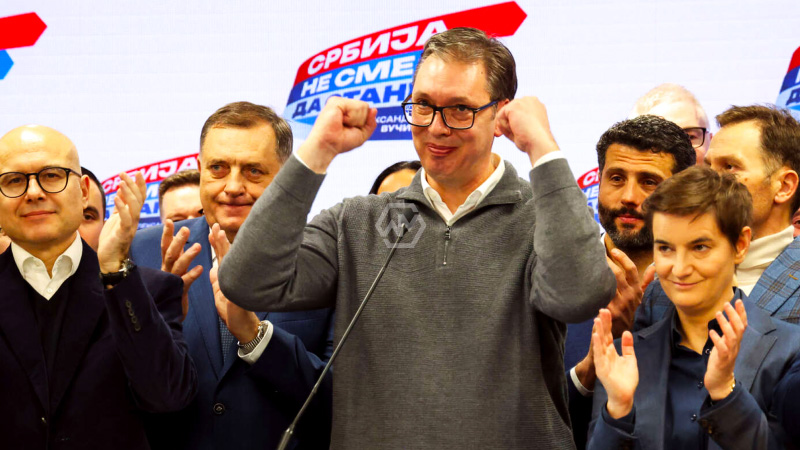- “Buses, minivans and cars were seen piling up in many places in Belgrade, moving voters to polling stations across the city,” the center said, while authorities denied any wrong-doing.
- The main opposition Serbia Against Violence, a pro-EU coalition, includes the parties behind the street demonstrations sparked by two back-to-back mass shootings in May this year.
- Vucic has also faced criticism for his handling of the crisis in the former Serb province of Kosovo, which declared independence in 2008, a move not recognized by Belgrade.
With half the votes counted, Prime Minister Ana Brnabic said President Aleksandar Vucic’s Serbian Progressive Party had won 47 percent of the vote and expected to hold about 130 seats in the 250-member assembly.
Brnabic said Serbia, the main anti-violence party, won 23 percent of the vote.
Center for Research, Transparency and Accountability (CRTA)
Sunday’s parliamentary and local elections were contested between Vucic’s ruling Serbian Progressive Party, or SNS, and a centrist coalition seeking to undermine the populists who have ruled the restive Balkan state since 2012.
Irregularities were reported by election monitors and independent media during Sunday’s vote, including when Serbs from neighboring Bosnia gathered to vote in a sports arena in Belgrade that was not an official polling station and a monitoring team was assaulted.
Observers from the independent Center for Research, Transparency and Accountability (CRTA) on Sunday expressed “deep concern” about cases of organized transfer of illegal voters from other countries to Belgrade, the group said in a statement.
“Buses, minivans and cars were seen piling up in many places in Belgrade, moving voters to polling stations across the city,” the center said, while authorities denied any wrong-doing.
The organization also reported cases of paying voters to vote for the ruling party and the presence of unauthorized persons at polling stations.
Even before polling began on Sunday, campaign monitors reported pressure on voters, intimidation and abuse of public office and institutions fostered by officials.
The main opposition Serbia Against Violence, a pro-EU coalition, includes the parties behind the street demonstrations sparked by two back-to-back mass shootings in May this year.
Serbia, a Balkan country with cordial relations with Russia and President Vladimir Putin, has been a candidate for EU membership since 2014 but has faced accusations of a steady erosion of democratic freedoms and rules in recent years.
Analysts say Vucic called the snap election to consolidate power after two shootings that sparked months of anti-government protests and fueled public discontent with high inflation and widespread corruption.
Vucic has also faced criticism for his handling of the crisis in the former Serb province of Kosovo, which declared independence in 2008, a move not recognized by Belgrade.



